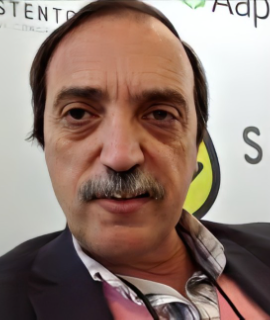Jorge Antonio Hilbert, Energy and Environmental Consulting Services, Argentina
Today, I present a critical analysis and proposal regarding the elimination of the indirect land use change (iLUC) factor in the environmental evaluation of Sustainable Aviation Fuels (SAF), with a particular focus on the Argentine context and global implications. The iLUC fac [....] » Read More






Title : Green management of enterprises as a response to climate change
Dai Yeun Jeong, Asia Climate Change Education Center, Korea, Republic of
Since industrialization was promoted in the 18th century, the enterprises focused on maximization of profit without considering nature being polluted and/or destructed in the process of resource extraction, production and distribution of goods and services. This is termed traditi [....] » Read More
Title : Low-frequency ultrasonication as a dual-purpose strategy for biomass and macromolecule enhancement in Chlorella sp.
Simran Maratha, Central University of Rajasthan, India
Efficient enhancement of macromolecular yields is pivotal for the economic viability of microalgae-based biofuel production. In this study, we investigate the dual application of ultrasonication, as both a stimulatory treatment for live Chlorella sp. cultures and a downstream ext [....] » Read More
Title : In-Situ extraction and (trans)esterification of high-free fatty acid rice bran oil using synthesized heterogeneous catalysts
Deepika Singh, Panjab University, India
Biodiesel is an emerging sustainable and clean alternative to conventional diesel fuel. This study presents a simultaneous extraction and (trans)esterification process for biodiesel production, where oil extraction and esterification occur in a single unit operation with alcohol [....] » Read More
Title : Research on high-temperature hydrogen-producing fungi assisted by AI
Zhikang Yang, Fujian Normal University, China
Currently, the Earth's mineral and petroleum resources are increasingly depleting, creating an urgent need for high-yield, low-energy-consuming hydrogen-producing fungi. Current research mainly focuses on isolating target strains from high-temperature environments, screening [....] » Read More
Title : Two-stage fermentation for converting waste CO2 into omega-3 fatty acids and biodiesel
Preeti Mehta Kakkar, Amity University Noida, India
This work introduces a novel two-stage continuous fermentation process for converting industrial waste CO2 into omega-3 fatty acids and biodiesel. In the first anaerobic stage, bacteria convert CO2 into acetic acid (~3%), which acts as an intermediate carbon source. In the second [....] » Read More